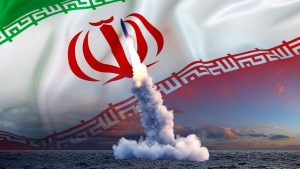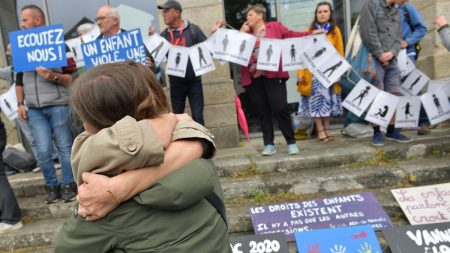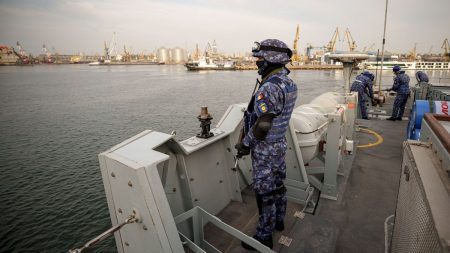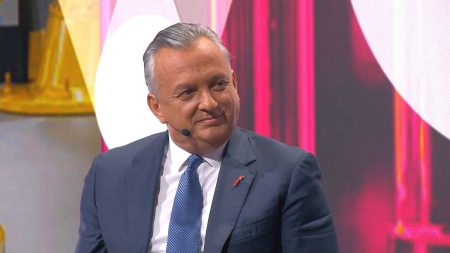Poland’s upcoming EU Council presidency, commencing in January 2024, promises a renewed focus on energy security and resilience, drawing lessons from Ukraine’s wartime experience. Deputy Minister Krzysztof Bolesta emphasizes the critical insights gleaned from Ukraine’s struggle, highlighting the importance of distributed generation, robust security of supply, and overall resilience in energy systems. The war has exposed vulnerabilities in centralized energy infrastructure, prompting a shift towards decentralized models, as exemplified by Ukraine’s efforts to rebuild its energy grid with a focus on green technologies. Poland intends to utilize this knowledge to strengthen the EU’s energy security framework and guide its transition towards a more resilient energy landscape. This aligns with the broader European sentiment, particularly in Eastern Europe, where concerns about regional security and potential spillover from the conflict are paramount.
A key priority for Poland’s presidency will be supporting Ukraine’s energy system and initiating discussions regarding its alignment with EU energy law. This includes the potential opening of the energy chapter in Ukraine’s EU accession negotiations, signaling a commitment to integrating Ukraine’s energy infrastructure with the broader European network. Poland views this as a crucial step towards ensuring long-term stability and resilience in the region. The presidency will also prioritize the complete cessation of Russian energy imports, a process already underway due to the invasion and subsequent energy crisis. This objective reflects a growing European consensus on the need to diversify energy sources and reduce dependence on Russia, further bolstering energy security and political independence.
Poland’s emphasis on energy security extends beyond immediate concerns about supply disruptions to encompass broader geopolitical considerations. Bolesta links energy security with food, water, and climate resilience, framing it as an integral part of Europe’s overall security architecture. He highlights recent incidents in the Baltic Sea, likely referring to the Nord Stream pipeline sabotage and other disruptions to underwater infrastructure, as evidence of physical threats to critical energy assets. This underscores the need for enhanced protection of energy infrastructure, acknowledging the vulnerability of interconnectors and pipelines in the face of potential sabotage or attacks. The focus on security extends beyond traditional notions of supply reliability to encompass protection against physical threats and geopolitical instability.
Poland’s perspective on the EU’s energy transition offers a pragmatic approach, acknowledging the challenges of transitioning away from fossil fuels, particularly in countries with high coal dependence like Poland. While supporting the shift towards renewable energy, Bolesta expresses reservations about the effectiveness of carbon pricing mechanisms in driving individual behavior change. He argues that simply increasing the cost of fossil fuels will not be sufficient to incentivize widespread adoption of electric vehicles or home energy efficiency upgrades. This perspective underscores the need for complementary policies, such as direct subsidies and targeted support for low-income households, to ensure a just and equitable energy transition.
The Polish presidency will advocate for a more comprehensive approach to the energy transition, emphasizing the social dimension and the need to mitigate the impact of rising energy prices on vulnerable populations. Poland sees the EU Social Climate Fund, financed by emissions trading revenues, as a crucial instrument for achieving this. This fund can be used to provide financial assistance to households struggling with energy costs, support home insulation projects, and promote the adoption of clean energy technologies like heat pumps and electric vehicles. Poland’s focus on social equity in the energy transition reflects its own experience as a relatively coal-dependent country grappling with the challenges of decarbonization.
In summary, Poland’s EU Council presidency will prioritize bolstering energy security and resilience, drawing lessons from Ukraine’s wartime experience and advocating for a pragmatic approach to the energy transition. This includes supporting Ukraine’s energy system integration, phasing out Russian energy imports, enhancing the physical security of critical infrastructure, and ensuring a socially equitable transition that addresses the needs of vulnerable households. Poland’s focus reflects a growing European awareness of the interconnectedness of energy security with broader geopolitical stability and the need for a comprehensive approach to address the challenges of decarbonization. The presidency aims to forge a more resilient and secure energy future for the EU, learning from the harsh realities of the ongoing conflict and ensuring a just transition for all member states.










